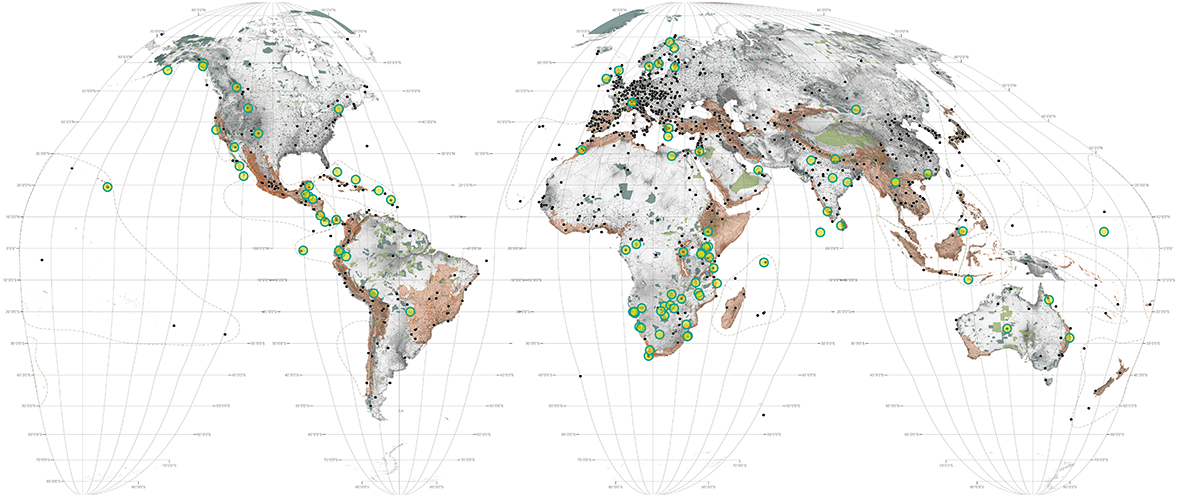It is no coincidence that tourism where the primary object of desire is the (pristine) natural world has emerged in an age of ubiquitous urbanization and environmental degradation. 1 Baby boomers and their offspring from the developed world have fanned out across the globe in ever more adventurous pursuit of proximity to ecologies and cultures far removed from their own. From youth hostels to luxury retreats, developments in picturesque settings touting small ecological footprints have been quick to accommodate them.
Though well-intentioned and a significant improvement to crude development, ecotourism is vulnerable to greenwashing. In 2015, in a bid to reassert the integrity of the concept the International Ecotourism Society (IES) defined ecotourism as "responsible travel to natural areas that conserves the environment, sustains the well-being of the local people and involves interpretation and education". The IES specifies that education must be for both staff and guests. 2 Although the industry remains unaccredited the IES demands that anyone involved in either producing or consuming ecotourism should abide by the following principles.
- Minimize physical, social, behavioral, and psychological impacts.
- Build environmental and cultural awareness, and respect.
- Provide positive experiences for both visitors and hosts.
- Produce direct financial benefits for conservation.
- Generate financial benefits for both local people and private industry.
- Deliver memorable interpretative experiences to visitors that help raise sensitivity to host countries' political, environmental, and social climates.
- Design, construct and operate low-impact facilities.
- Recognize the rights and spiritual beliefs of the Indigenous People in your community and work in partnership with them to create empowerment. 3
Whilst critics point to the many possible contradictions in the ecotourism trade and question the ways in which nature and culture are reduced to commodity status in the tourist's gaze, ecotourism can be a useful tool in the complex negotiations and economic arguments needed to protect places and peoples from more aggressive and destructive forms of exploitation.
1 The International Ecotourism Society, http://www.ecotourism.org (accessed September 6, 2016).
2 The International Ecotourism Society (TIES), "TIES Announces Ecotourism Principles Revision," (January 7, 2015), https://www.ecotourism.org/news/ties-announces-ecotourism-principles-revision.
3 Ibid.
1. Ecotourism Destination
The International Ecotourism Society, "Member Map," http://www.ecotourism.org/member-map (accessed September 11, 2014).
Costas Christa & Kate Siber, "50 Top Ecolodges: The Most Earth-Friendly Retreats in the World's Most Spectacular Wilds," National Geographic, http://adventure.nationalgeographic.com/2008/11/ecotourism/world-map-interactive (accessed September 11, 2014).
2. UNESCO World Heritage Site
UNESCO, "World Heritage List," http://whc.unesco.org/en/list/ (accessed November 6, 2014).
3. Protected Areas
IUCN and UNEP-WCMC. The World Database on Protected Areas (WDPA) [On-line], Cambridge, UK: UNEP-WCMC. Available at: www.protectedplanet.net.
4. Hotspots
Critical Ecosystem Partnership Fund, "The Biodiversity Hotspots," http://www.cepf.net/resources/hotspots/pages/default.aspx (accessed July 1, 2014). Data made available under the Creative Commons BY-SA 4.0 License: https://creativecommons.org/licenses/by-sa/4.0/legalcode.


